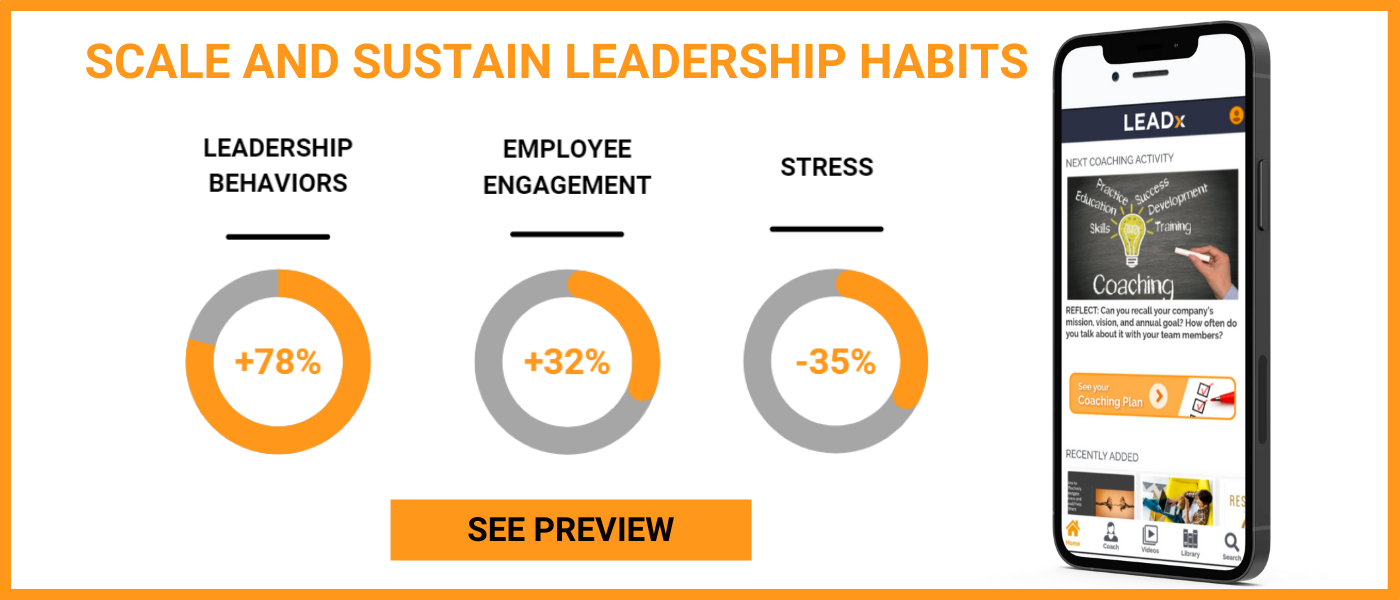
Defined: Driven to meet or exceed specific goals and objectives as quickly as possible. Focused on results, not the process, and will leverage resources available and solve problems creatively to get the job done.
“Execution is everything.” –John Doerr
Results-focused leaders are driven by their end goal. It is their concentration on achievement, vs. on the means of routine operations that defines them. Less masterful managers strive for optimization but can be inclined to do so, as much or more for the sake of managing routines than for the maximization of progress toward the accomplishment of their purpose. Operational staff in organizations led by results-oriented managers approach their work with that sense of urgency that characterizes teams' behavior in the most productive workplaces. However achievement is evaluated, members of results-driven teams have a strong sense of their shared priorities and singular mission, and are all fully focused on delivery.
Leaders Skilled in Results Focus (Execution)
- Have track records of consistently achieving high results
- Are mentally oriented to continuously anticipate reaching the finish line
- Are highly effective motivators
- Set ambitious goals for themselves and their teams
- Provide clear and succinct direction
- Are skilled in building momentum in productivity across their team
- Inspire confidence in leadership and achievability of goals
- Exhibit an ideal work ethic and otherwise strong personal integrity
- Provide real-time feedback and guidance
- Expect and overcome obstacles, and persist in the pursuit of objectives
- Are adept at deflecting time-consuming distractions
- Are skilled in negotiation and conflict resolution
- Promptly identify and address issues that can impact progress
What Prevents the Ability to be Results Focused (Execution)
- Poor organization
- Failure to apply additional resources and personal efforts as needed to reach goals
- Insufficient skills in strategic planning
- Driven by meeting the deadline vs. achieving the desired results
- Getting distracted by minor issues
- Prioritizing less relevant improvements and losing focus on the end goal
- Failure to stop as needed and properly resolve problems that will impact timelines or quality
- Fear of failure or mistakes
Self-Coaching Questions
- Can you state your current goals for the quarter or year? Your team goals? Your manager’s goals?
- How is your track record in satisfying stakeholders with the results your teams have produced for them in the past?
- Do you have a clear, practical, streamlined plan for producing and delivery the results needed for your success?
- Can you articulate what mistakes led to a previous failure and the necessary adjustments you have made?
Tips for Results Focus (Execution)
- Form the simplest comprehensive strategy for accomplishing the desired result.
- Have a clear quantification and/or qualification, to express measurement of results.
- Obtain buy-in on goals from all stakeholders.
- Meet with each team member and agree on ambitious, but attainable goals.
- Get confirmation from all team members that they are clear on objectives.
- Promote a positive, enthusiastic atmosphere.
- Help every employee become fully engaged in the mission.
- Empower employees to creatively solve problems.
- Monitor productivity rates, and swiftly address consistently low performance.
- Emphasize to team members the importance of reporting issues and expressing concerns.
- Provide timely feedback. Reward high performance, and provide guidance to improve underperformance, as needed.
- Reinforce directives, encouragement, guidance and the end goal.
Developmental Action Plan for Results Focus (Execution)
- LEARN: Read the book (or LEADx Summary), The One Thing, by Gary Keller.
- LEARN: Read the book (or LEADx Summary), Execution, by Larry Bossidy and Ram Charan.
- LEARN: Read the book (or LEADx Summary), The 4 Disciplines of Execution, by Chris McChesney.
- REFLECT: Complete the Leadership Self-Reflection: Results Focused (Execution) worksheet, in the LEADx Library.
- REFLECT: What is the “one thing”–your most important goal–for the month, the quarter, the year? What is your plan for achieving it?
- APPLY: Discuss your “one thing” and other top priorities with your manager and make sure they are in agreement.
- PLAN: Schedule a recurring weekly meeting with yourself to review your progress on objectives; schedule time each month to review with your team.
- APPLY: Consider what resources you need to achieve your goals faster. Use your network, the power of persuasion, and negotiation skills to get these resources.
- APPLY: Inspire action and convey a sense of urgency during your one-on-one and team meetings this week.
- REFLECT: What percent of your work hours last week were spent on your “one thing” and what percent was spent on busy work, office drama, and lesser tasks?
- REFLECT: What might go wrong and prevent you from achieving your goals? What is Plan B? What if a key person resigns, or you lose a key customer? What if equipment breaks?
- MEASURE: Use a pulse-survey to measure your Results Focused score, or ask your manager whether they've seen an improvement in your results orientation.
Additional Points for Thought
It may seem counterintuitive that being results focused could be in conceptual conflict in any way with being focused on perfecting operations. The point is not that operations can be viewed as somehow lower in priority than the results they generate, because, of course, they cannot. Tending to operational efficiency is fundamental for optimal results in terms of production quantity or quality, or both. The point is that the operation must simply be understood as a means to an end, not an end in and of itself. In other words, job responsibility doesn't begin and end in fulfilling one's commitment to put in the required total of hours, or even to meet the required performance quota. The larger responsibility is to make that bloc of accomplishment count maximally toward the group's end goal.
Suggested Additional Resources
- Ulrich, D, Zenger, J and Smallwood, N (1999) Results-Based Leadership, Harvard Business School Press, ISBN-13: 978-0875848716, ISBN-10: 0875848710.
- Bradberry, T (2016, December 23) Results Or People: Where Should A Leader Focus?, Forbes, Retrieved on 4-10-19 from: https://www.forbes.com/sites/travisbradberry/2016/12/23/results-or-people-which-deserves-a-leaders-attention/#6802158626c5.
- Craig (2018, July 3) Leadership Practices That Drive Results, Forbes, Retrieved on 4-2-19 from: https://www.forbes.com/sites/williamcraig/2018/07/03/leadership-practices-that-drive-results/#2227605fbc67.
- Drucker, P (2006) Managing for Results, HarperCollins Publishers, ISBN 0-06-091339-8.
- Liberman, M (2013, December 27) Should Leaders Focus on Results or On People?, Harvard Business Review, Retrieved on 4-10-19 from: https://hbr.org/2013/12/should-leaders-focus-on-results-or-on-people.
- Hickman, C and Morgan, C (2017, November 15) Results Revolution: Achieving What Matters Most Your Team, Your Company, Your Life, Partners in Leadership, LLC., ISBN: 13-978-0-9980200-2-0.
Suggested Internet Search Terms
focus on results, results-oriented, results-focused leadership, results-focused management, SMART goals, goal-setting, OKR’s, execution, cascading goals







